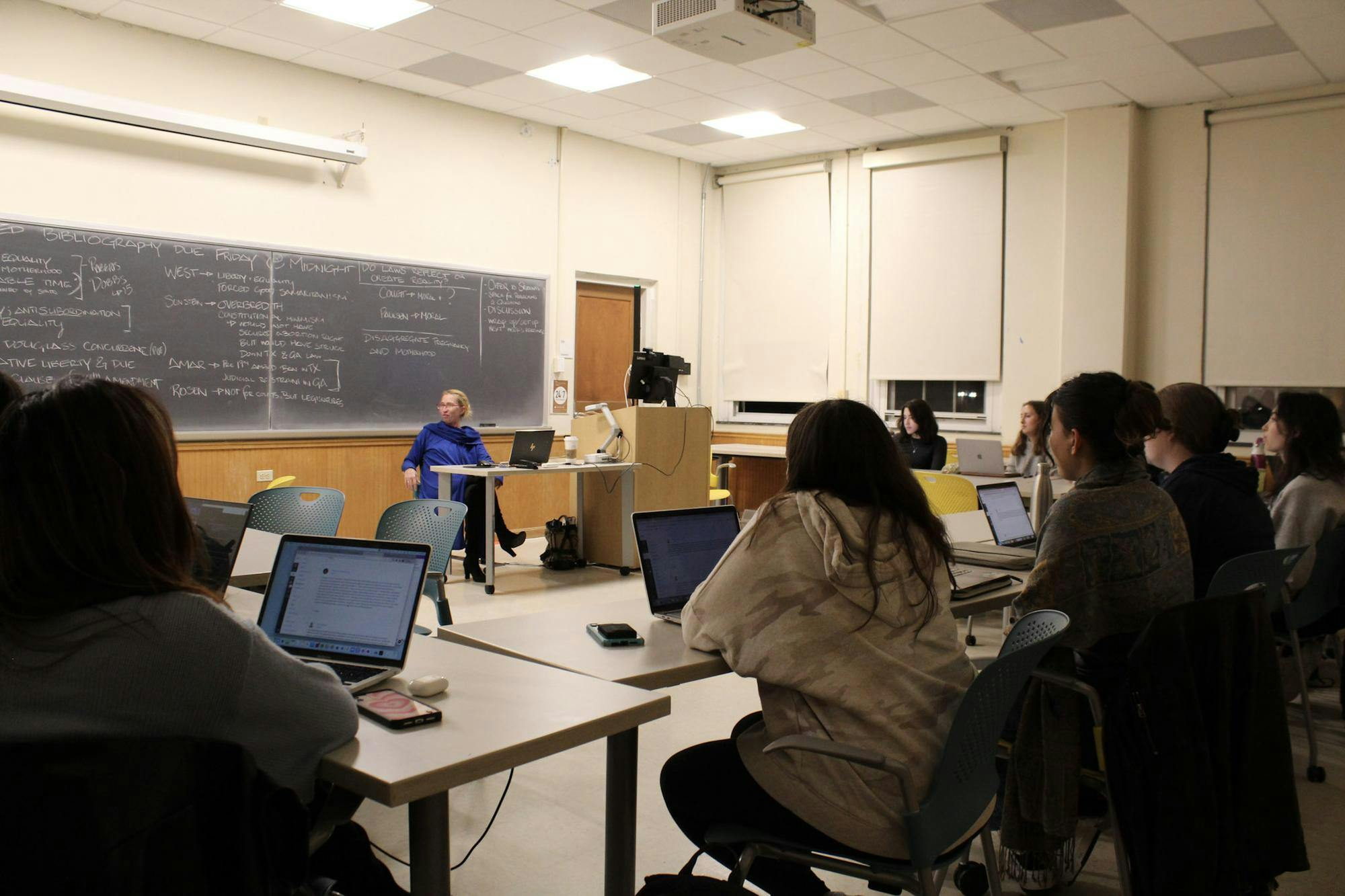For students at many universities, the first week of a new semester is often filled with exhilaration and curiosity. Students add all the classes that interest them to their schedule, sometimes enrolling past the credit limit temporarily to figure out which ones suit them the most. For students at Tufts, however, the scene is quite different. The first week of school is stressful and hectic: Students worry about finding the best combination of classes, maneuvering through plans to drop unwanted classes and add new classes, all while trying to fit into an 18-credit limit and not lose a vital position on a waitlist.
The culprit for all of this stress and anxiety is the lack of a shopping period. A “shopping period” refers to the first one to two weeks of every semester, where students enroll in as many courses as they want, regardless of total credit limits. Currently, Brown University, Dartmouth College, Barnard College and many other institutions of similar size already have this practice in place, allowing students to explore classes that are best in line with their interests. As a multicultural institution that proudly champions the diversity and flexibility of its education, Tufts ought to do what’s best for students’ interests and give us similar opportunities.
A critical concern about the lack of a shopping period is the constraint it places on students’ intellectual curiosity. The current system, wherein students are compelled to select classes within a specified credit limit, makes students prone to selecting classes that fulfill their major requirements and neglecting classes they find genuinely exciting. This in turn limits students’ ability to pursue their passions, directly contradicting Tufts’ ethos of fostering students’ varied and interdisciplinary interests. It is only when students experience these interesting classes firsthand that they get a true taste of what they may have initially deemed ‘useless.’ In turn, this makes them more likely to choose classes outside of their field of study. It is thus the university’s responsibility to take necessary avenues to embrace the mission that it promises and let both current students and incoming applicants fully understand what it means to have a Tufts education.
Moreover, the lack of a shopping period makes selecting desirable classes more difficult for students, especially given the many limitations that already exist within Tufts’ course registration system. Imagine you are on the waitlist for a class you really like, but the professor will not give you a definite answer about whether or not you will get off the waitlist. You believe it would be sensible to put this class aside and try out a new class. However, you also cannot afford to drop this class and lose your top position on the waitlist. Having a shopping period, where you could drop in on any class you want, would easily resolve this issue. You could try out both classes, then decide which one to take.
With information on how other schools navigate the shopping period available online, it is certainly feasible for Tufts to adopt this approach. Brown’s website, for instance, states that students can add as many classes as they wish to a “primary cart,” before officially settling on classes after the shopping period ends. Given the viable models that exist at other private universities, Tufts should learn from their example and implement a similar process for course registration. Even if changing the course registration process entirely may not be done immediately, other efforts such as increasing waitlist capacity or making course syllabi open to students during registration, as others have already advocated for, would be beneficial. Such improvements could help to both increase the visibility of course content so students can gain greater insight into different classes and to help students make more informed decisions when adding courses to their schedules.
As a multicultural, diverse and inclusive institution, Tufts must do more to give students as much freedom as possible to explore their niche interests in diverse disciplines. Allowing for a shopping period will do exactly that.






